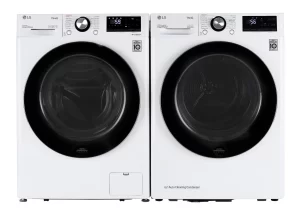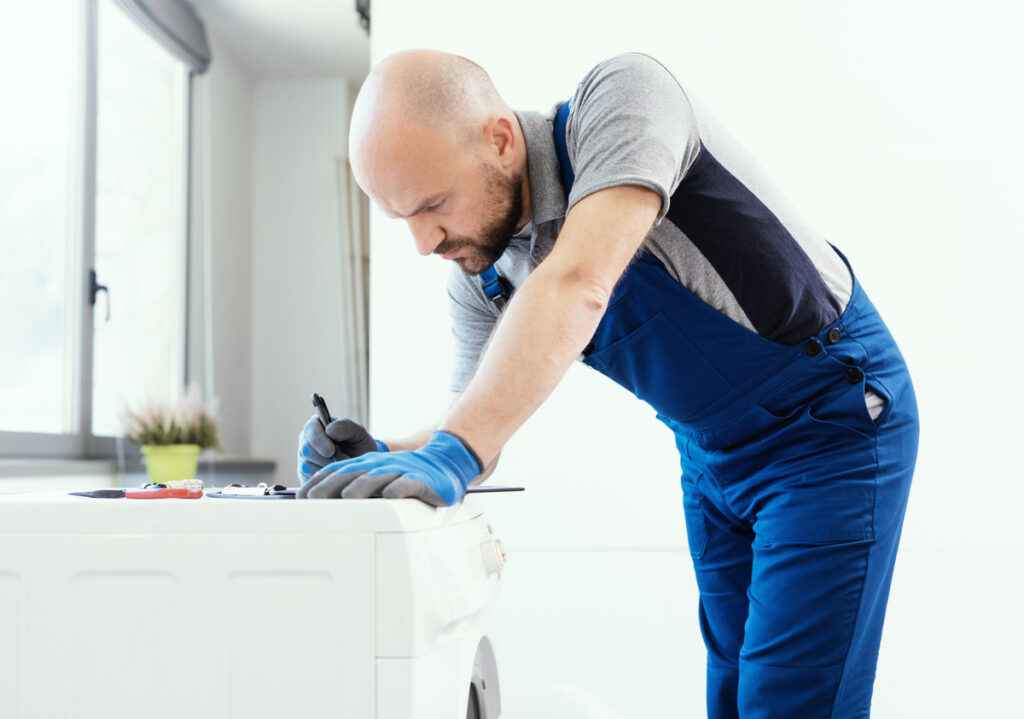Working time:
Monday to Saturday: 8:00 A.M. – 7:00 P.M.
Sunday: 9:00 A.M. - 4:00 P.M.
Working time:
Monday to Saturday: 8:00 A.M. – 7:00 P.M.
Sunday: 9:00 A.M. - 4:00 P.M.
Client Services:
Client Services:
LG Washer & Dryer Repair
LG washers and dryers are known for their advanced technology and energy-efficient performance, making them popular choices in modern homes. However, like any appliance, they can encounter issues such as water drainage problems, inadequate drying, or noisy operations. It’s essential to address these problems promptly to ensure the longevity and efficiency of your LG washer and dryer. Below, you’ll find common issues, troubleshooting steps, and practical solutions to help maintain your appliance’s performance.

Common Problem
LG washers and dryers can experience a variety of issues, from water drainage problems to inconsistent drying. These problems may stem from clogged filters, faulty sensors, or issues with the drum or motor.
If your washer is not draining properly, the drain pump or hose might be clogged with debris. In dryers, improper airflow due to a clogged vent or lint buildup can lead to longer drying times or overheating. Other common issues include the appliance not starting, unusual noises during operation, or inefficient spinning in washers.
LG Clothes Washer & Dryers Troubleshooting
If your washer isn’t draining, check the drain pump for clogs or damage. Remove any visible debris from the pump or hose. If the hose is kinked, straighten it. Test the pump for proper operation by listening for a hum or vibration.
For dryers that don’t heat, inspect the heating element for visible damage. Check the thermal fuse and high-limit thermostat for continuity. If the fuse is blown, it must be replaced. Clean the lint trap and vent hose to ensure proper airflow.
If you hear grinding or rattling noises, inspect the washer drum or dryer drum for foreign objects. For dryers, check the drum rollers, bearings, and drive belt for wear. If the washer makes a loud noise, it may be due to an unbalanced load or damaged bearings.
When drying times are extended, check the vent system for clogs or obstructions. Clean the lint filter and check the external vent. If the blower wheel is worn out, it may need to be replaced to ensure proper airflow.
If the washer isn’t spinning, check the lid switch to ensure it’s engaging properly. If the switch is faulty, it may need to be replaced. Also, verify that the drive belt and motor coupler are functioning correctly.
For both washers and dryers that won’t start, check the power supply and confirm that the circuit breaker hasn’t tripped. Inspect the door latch and door switch to ensure the appliance is properly closed. If the issue persists, check the control board or timer for potential malfunctions.
Top 6 Problems and Solutions for your LG washer & dryer
Unusual Noise During Operation
1. Inspect the drum rollers for wear
2. Check the motor for signs of failure
3. Tighten the belt and check for wear
4. Replace damaged bearings
5. Clear foreign objects from the drum
Dryer Taking Too Long to Dry
1. Clean the lint filter and vent
2. Check for obstructions in the vent hose
3. Inspect the blower wheel for debris
4. Test the heating element for proper function
5. Replace damaged components as necessary
Washer Not Spinning
1. Check the drive belt for damage
2. Inspect the lid switch for faults
3. Test the motor for proper function
4. Replace the drive belt if necessary
5. Inspect the clutch for issues
Dryer Not Starting
1. Verify the power supply and outlet
2. Check the door switch for proper operation
3. Test the start switch and timer
4. Inspect the thermal fuse
5. Replace damaged electrical components
Dryer Not Heating
1. Inspect the heating element for visible damage
2. Test the thermal fuse for continuity
3. Check the thermostat for accuracy
4. Inspect the power supply for issues
5. Replace faulty components as needed
Washer Not Draining
1. Check the drain pump for blockages
2. Clear the filter and inspect the hose
3. Replace clogged or damaged components
4. Test the pump for proper function
5. Ensure the drainage system is clear
Additional LG Washer & Dryer Troubleshooting Techniques
For your LG washer and dryer, regular maintenance is essential to prevent issues from arising. Start by cleaning the lint filter in the dryer after every use and periodically inspecting the vent system for blockages. A clogged vent can cause overheating and longer drying times, reducing the appliance’s efficiency.
For washers, always check the drainage system for clogs, especially after washing larger loads or heavier items. Clean the drain filter regularly and ensure the pump is free of debris to avoid drainage problems. If you notice any unusual sounds, inspect the motor, drum, and bearings to ensure everything is operating smoothly.
Lastly, if your washer or dryer isn’t starting, make sure that the appliance is properly plugged in, and check the power supply. If you’re still encountering issues, testing the control board or timer for functionality is a good next step. Always consult the user manual for your specific model for maintenance tips and troubleshooting advice to ensure your LG washer and dryer continue to operate at their best.

Schedule an Appointment Online
Contact us:
Phone Number
+1 (855) 879-9929
info@washer-dryer-repair-service.com
Working Hours
Mon – Sat: 8AM – 7PM
Sun: 9AM – 4PM
